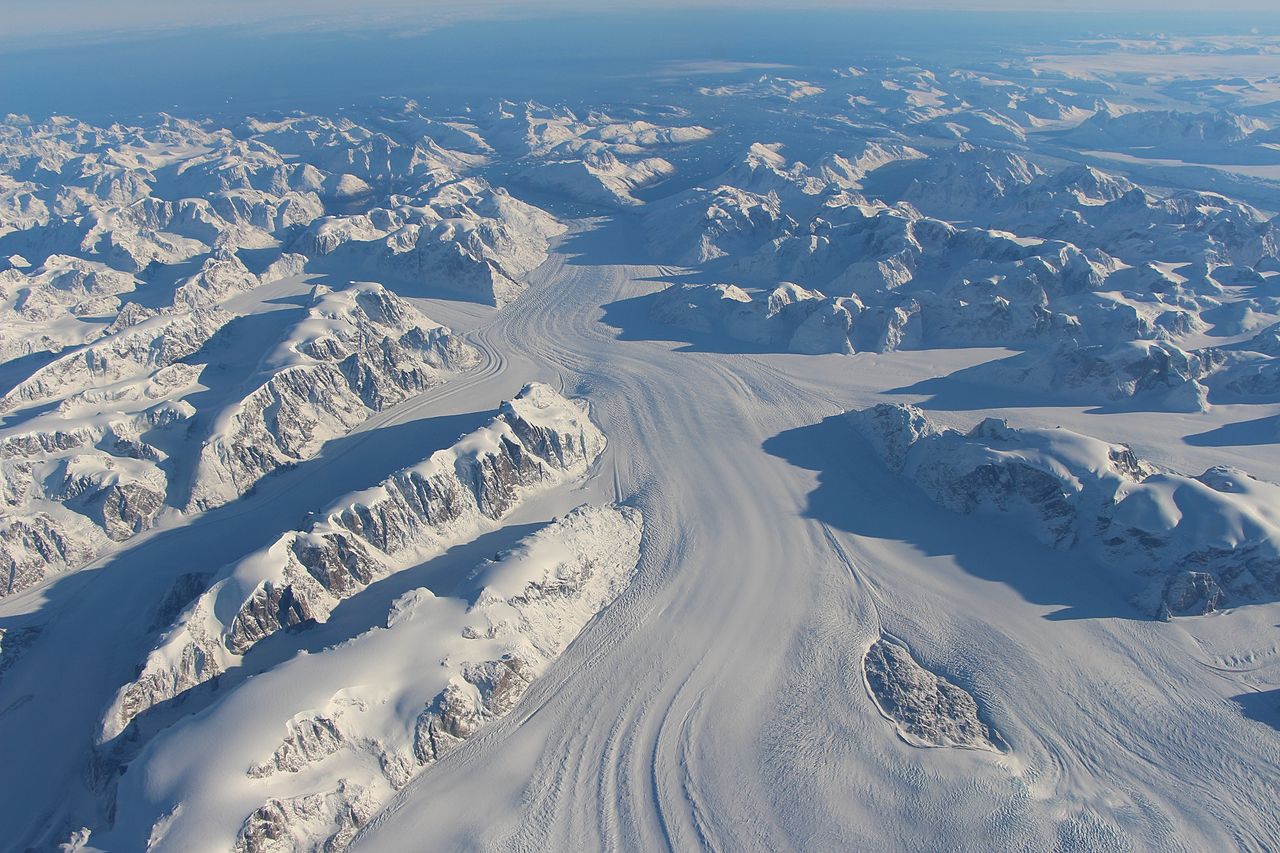Paris Agreement targets could greatly reduce loss of ice sheets, glaciers
Sea level rise from melting land ice could be cut in half if warming is kept to 1.5°C
May 5, 2021 - by Staff
May 5, 2021 - by Staff

Heimdal Glacier in southern Greenland, in an aerial image captured on Oct. 13, 2015, as part of NASA’s Operation IceBridge, an airborne survey of polar ice.
New research from a large international team of scientists predicts that sea level rise from the melting of land ice could be halved this century if society were to meet the Paris Agreement target of limiting warming to 1.5°Celsius.
The new study, led by Tamsin Edwards at King’s College London with co-authors from the National Center for Atmospheric Research (NCAR), focuses on the impact of runoff from the world’s glaciers and the Greenland and Antarctic ice sheets this century.
Using a combination of computer models and statistical techniques, the authors predict that limiting global warming to 1.5°C would reduce Greenland ice sheet losses by 70%, and glacier losses by half, compared with current emissions pledges. The situation in Antarctica is less clear because it is uncertain whether snow falling in the cold interior of the ice sheet will offset melting at the coasts.
NCAR co-authors William Lipscomb and Gunter Leguy used the Community Ice Sheet Model, a component of the NCAR-based Community Earth System Model (CESM), to simulate the influence of climate change on the Greenland and Antarctic ice sheets. Thanks to recent advances, CESM is able to model the response of ice sheets to warmer air and ocean temperatures and other aspects of the global climate system, thereby enabling scientists to better estimate future sea level rise. Lipscomb and Leguy ran the simulations on the Cheyenne supercomputer at the NCAR-Wyoming Supercomputing Center.
“This study confirms that the melting of ice sheets and glaciers will continue to raise global sea level,” Lipscomb said. “The good news is that we can cut future melting in half by meeting the 1.5°C goal of the Paris climate agreement. For those of us who study ice sheets, this study also shows that we need to keep improving our models of Antarctica because that's where the largest uncertainties are.”
He added that scientists are planning follow-up studies to simulate ice sheets and sea level rise beyond 2100.
The study, Projected land ice contributions to twenty-first-century sea level rise, was published in Nature this week. For more about the study, see the King’s College press release.